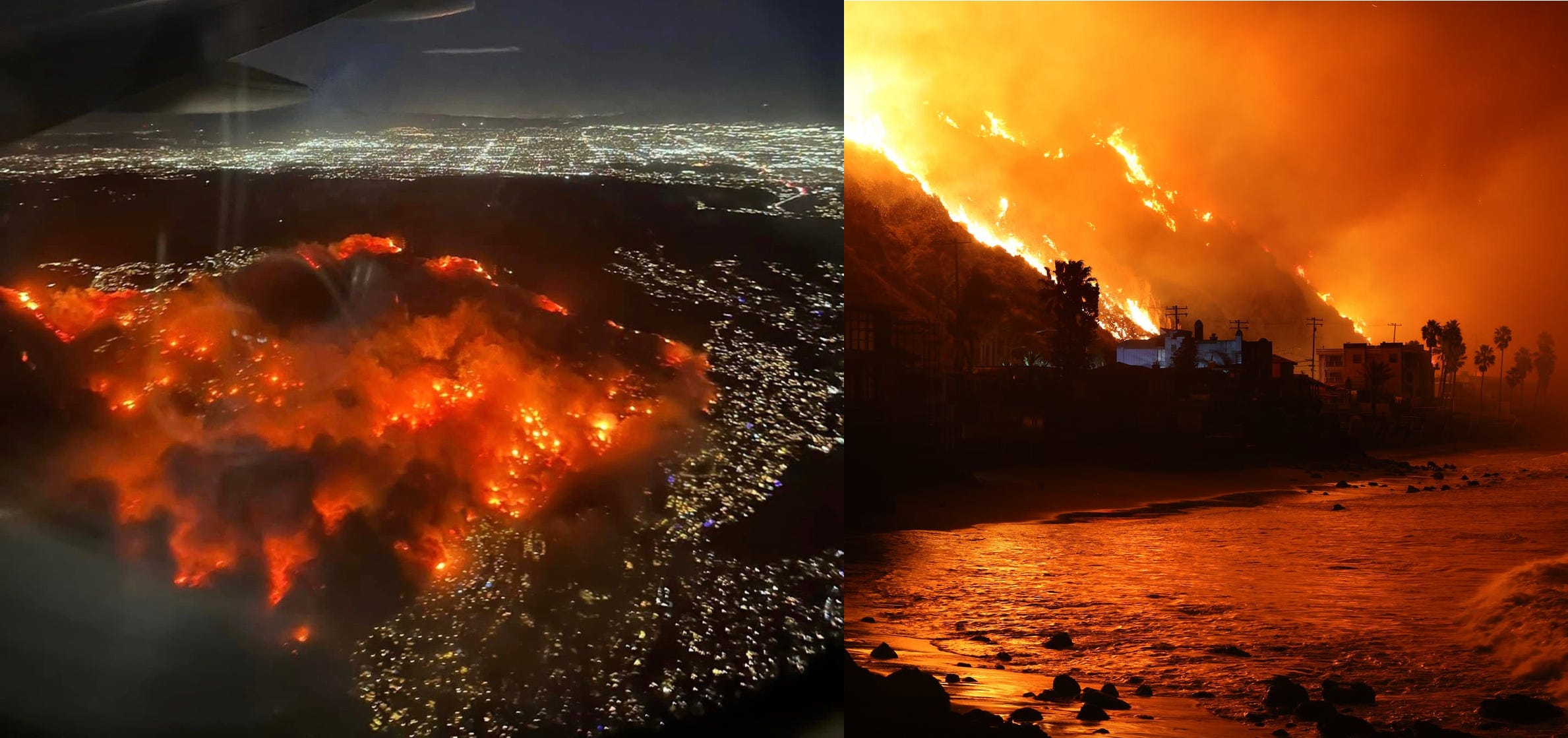American Climate Apocalypse
California is the beating heart of the American economy. Climate disasters are threatening to kill that.
In 2007, I was living in Los Angeles during what was the most destructive wildfire season Southern California had known at the time. I still have vivid images of a number of occurrences—the smoke rolling in and blotting out the sun, the thick ash piled on every vehicle I walke…



